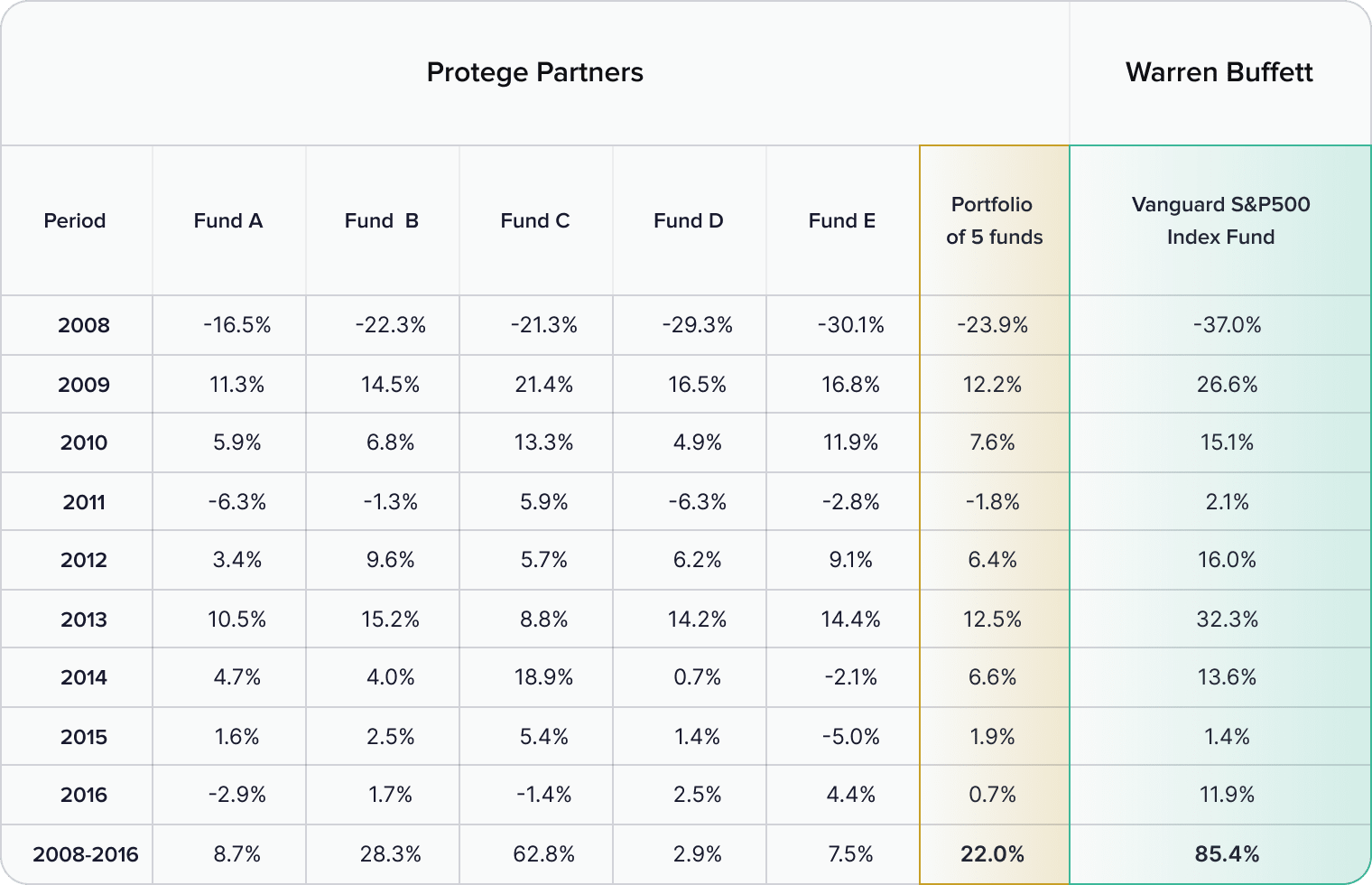
Simulan ang pag-invest sa lumalagong merkado ng cryptocurrency nang walang espesyal na kaalaman at pagkawala ng oras, gamit ang mga handang index na portfolio.
How the index works to increase your savings
This story is a clear indication of how index investing has outperformed many other approaches to savings management over the years. Just familiarise yourself with these ironclad facts so you don't have to rely on speculation and reasoning when it comes to your finances.
Warren Buffett, one of the world's wealthiest and most successful investors, publicly announced in early 2007 that he was willing to bet $500,000 that ‘no professional could put together a portfolio that would overtake the returns of the S&P 500 simple market index in ten years, taking into account all fees and commissions.’ The top professionals in the financial world were being asked to prove that they could generate more income for their investors than investing their savings in the index.
Financial companies attracted thousands of investors and billions of dollars under their management, promising high returns, but were not in a hurry to accept the challenge. In the end, the challenge was accepted by Protégé Partners, an investment company that manages about 100 hedge funds focused on maximising returns for their clients. From these companies, the 5 most promising ones were selected to take part in the bet.

None of the largest investment companies were able to bring their investors more returns than the index. By a large margin, the bet, was won by Warren Buffett, who simply invested his money in the index. During the entire 10 years that the bet lasted, the best management companies were able to beat the returns of the market index only once - in 2008, when the world was going through a financial crisis. However, all the other 9 years, the index delivered superior returns. This case clearly demonstrates that even the best specialists of the financial world could not outperform the market.
Why, then, do financial companies continue to attract investments rather than simply placing clients' savings into the index? The answer is simple: the industry standard asset management fee is 2% per annum of funds plus 20% of profits. Since investing in an index does not require active management, such a fee becomes unjustified. Buffett wanted to show with his bet that financial organisations often act in their own interests rather than in the interests of investors.
How does an index work in the cryptocurrency market?
In the world of cryptocurrencies, the market index works in the same way as in the traditional market. It aggregates information about different cryptocurrencies, presenting an overall picture of the market. Investing in a cryptocurrency index allows you to spread risks and saves investors from the need to constantly monitor each individual coin. This approach is especially relevant for the cryptocurrency market, where price fluctuations can be extremely significant.
Billionaire Warren Buffett follows this investment strategy, which is now available on the cryptocurrency market. It is a well-known fact that many major funds and financial professionals choose index investing for their personal savings.
Professionals choose index investing



Maaari kang magsimula kahit kailan mo gusto. Halimbawa, ngayon na!
Lahat ng kailangan mo para sa mabisang pamumuhunan sa cryptocurrency sa isang maginhawa at simpleng serbisyo.
Subukan nang libre